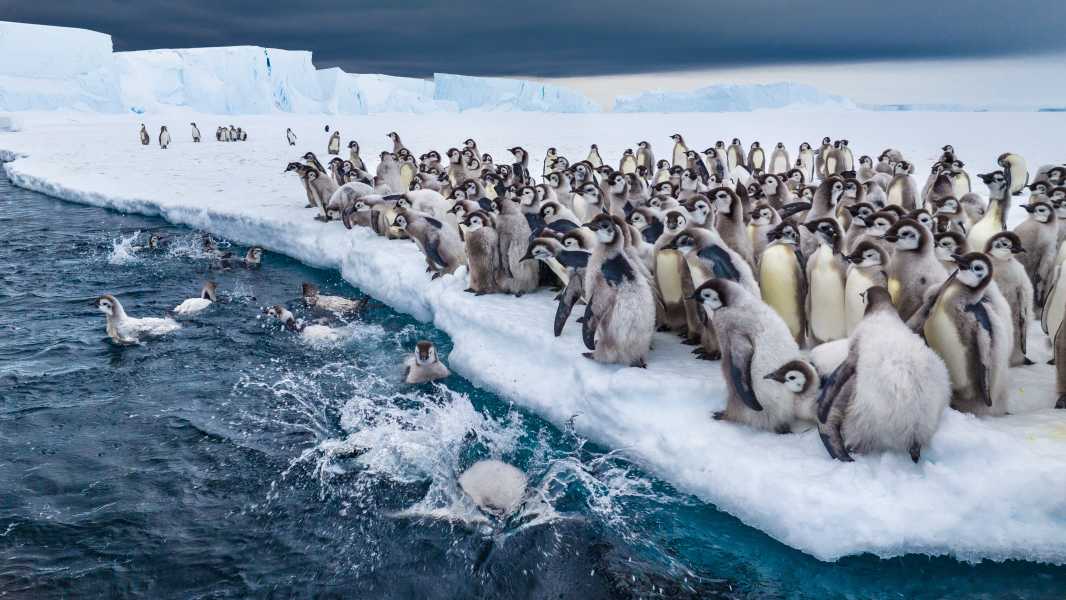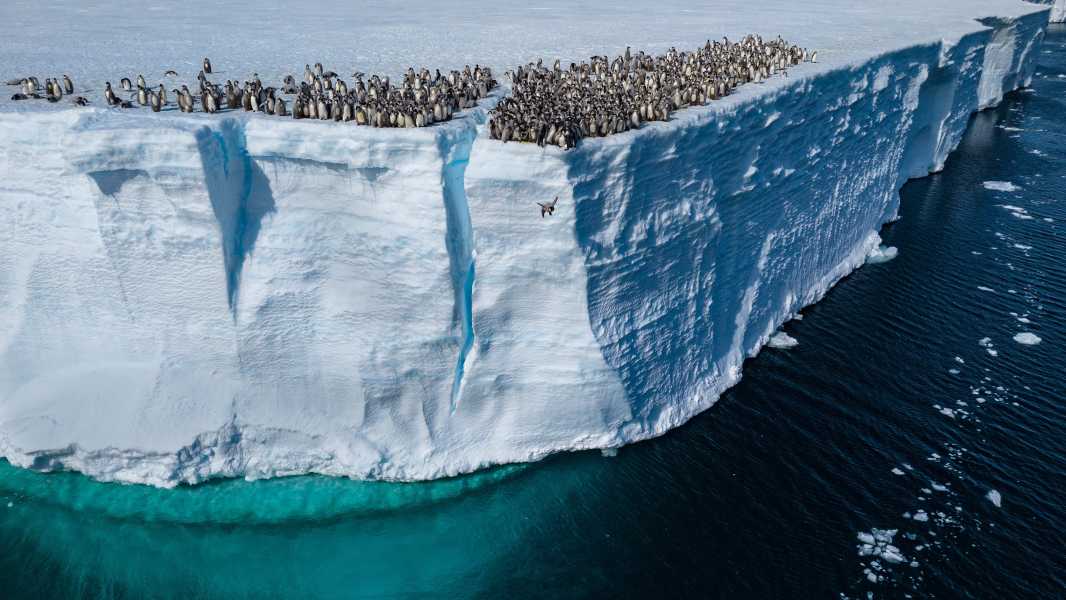
Emperor penguin chicks take their first swimming steps in Atka Bay, Antarctica (Photo credit: National Geographic/Bertie Gregory)
Secrets of the Penguins, a three-part documentary produced by James Cameron, debuts this weekend and takes watching these charismatic birds “to a whole new level,” according to the acclaimed director.
This National Geographic documentary is hosted by wildlife filmmaker Bertie Gregory and narrated by Blake Lively.
The series includes many never-before-seen scenes, including the now-viral moment of emperor penguin (Aptenodytes forsteri) chicks jumping off a 50-foot (15-meter) cliff into the waters of the Southern Ocean.
“I'm not sure they were prepared for this, but that's what happened,” Cameron told Live Science during a roundtable discussion on Thursday (April 17). “They got lost somewhere on the coast and ended up having to jump in the water to take their first swim.”
The series was a massive, globe-spanning project involving more than 70 scientists and filmmakers over two years. Locations included the beaches of Cape Town in South Africa, the Galapagos Islands, the desert caves of Namibia and 274 days on Antarctica’s harsh Ekström Ice Shelf, home to a colony of 20,000 emperor penguins.
Cameron is drawn not only to the penguins’ remarkable resilience, but also to the social creativity required to survive in such a harsh environment. Another novel behavior captured in the series shows a pair of emperor penguins passing an egg-sized chunk of ice between them, presumably in preparation for the real thing. (If the eggs and chicks leave the warmth of their parents’ pouches for more than a minute or two, they can die.)

Emperor penguin chicks perform a BASE jump from an ice shelf in Atka Bay, Antarctica.
“They failed to hatch any eggs that season or they died, and now they're rehearsing behavior to improve their chances,” Cameron said. “Are we seeing this working strategically over millions of years to make these creatures adapt
Sourse: www.livescience.com





